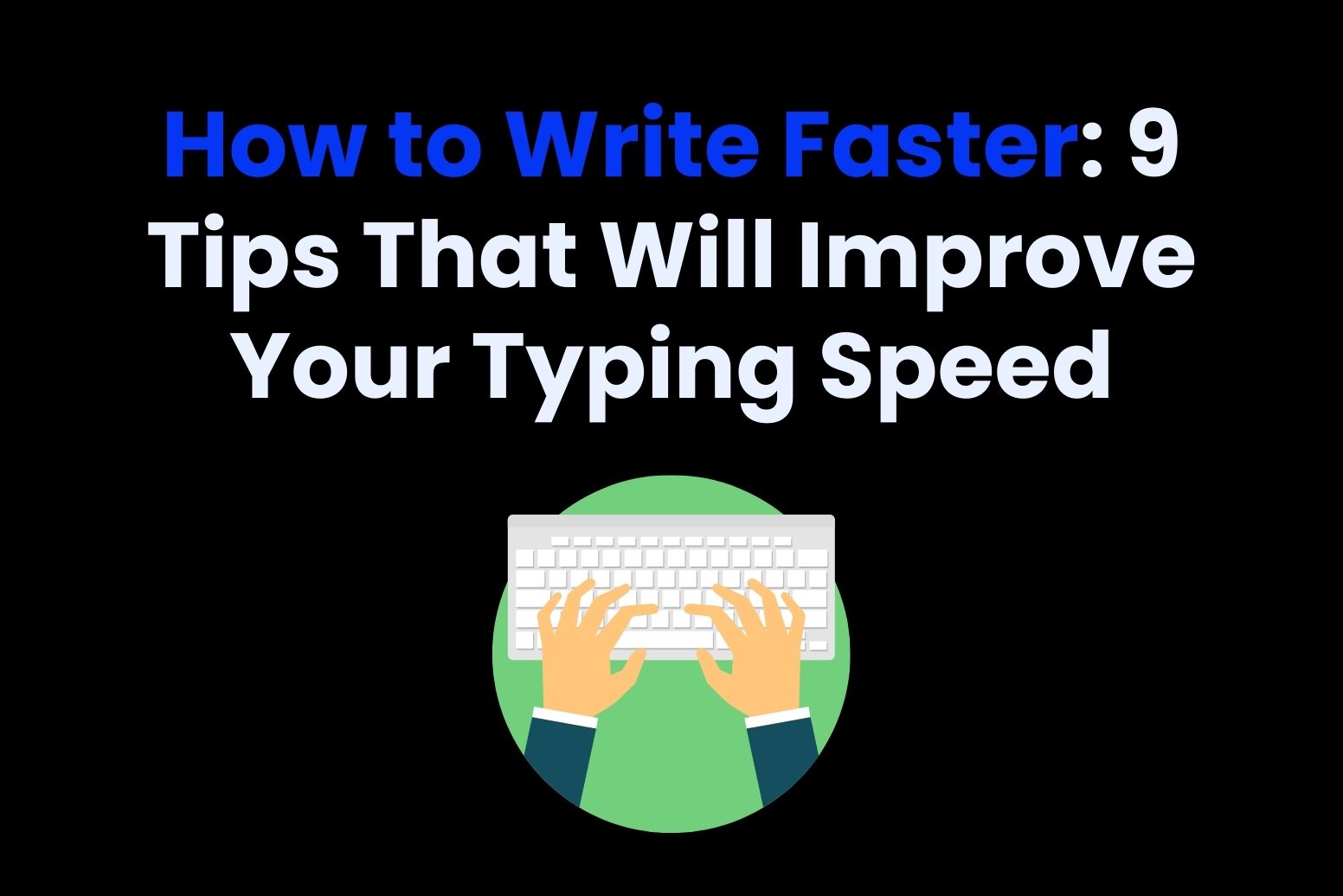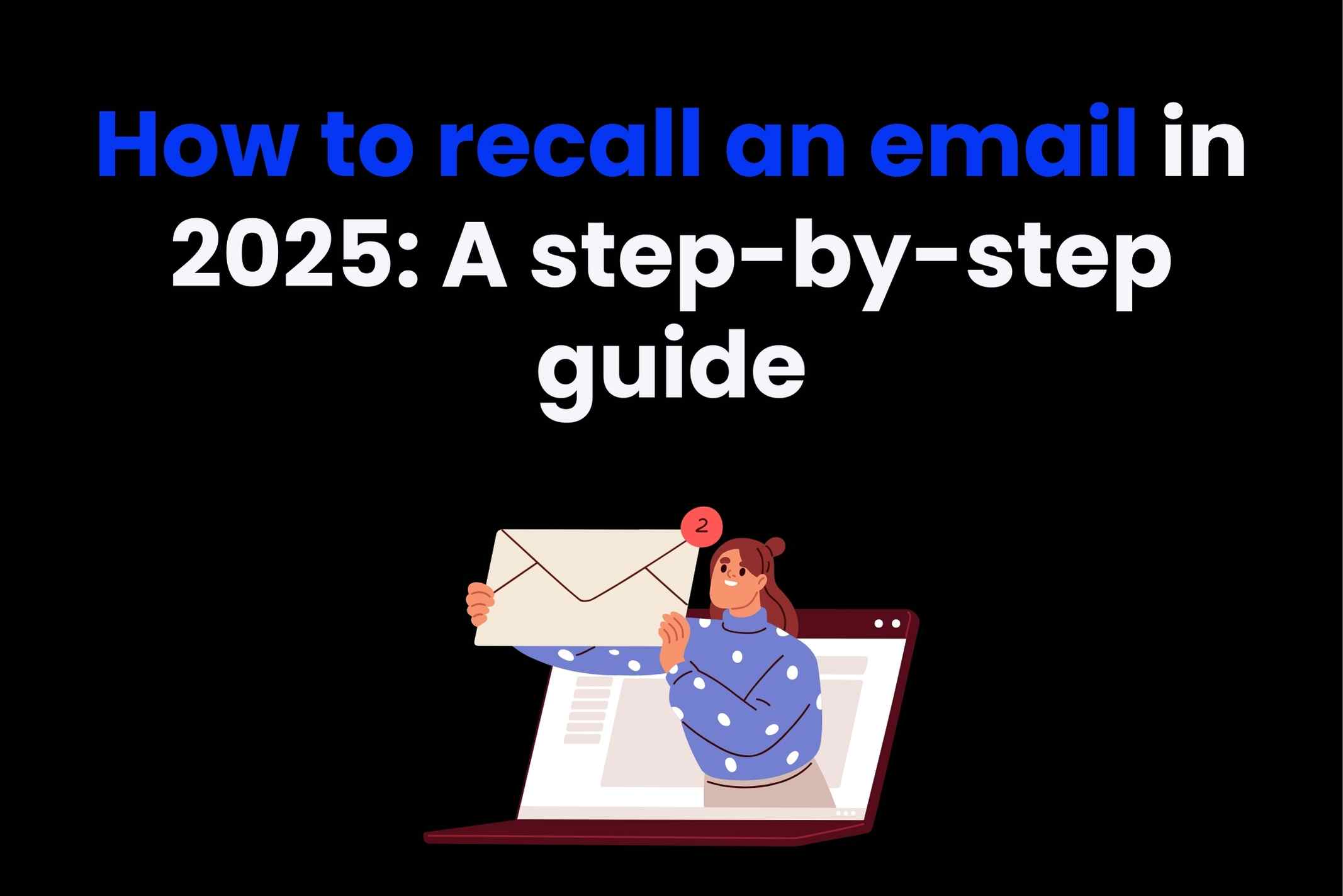Learning how to write faster can have many benefits. It can help you to meet deadlines, get through more work in a day, and even earn more money, depending on your job.
But when aiming for speed, it’s crucial not to forget about accuracy. The goal is to sharpen your writing skills so you can write faster without compromising the quality of your output.
So, whether you’re writing academic essays, professional blog posts, or research papers, writing faster can help you.
Join us as we introduce you to some tips and tricks that will help to sharpen your writing skills for faster and better results.

Before learning how to write faster – what’s a decent writing speed?
When considering a decent writing speed, you must be aware of subjectivity.
For instance, some fiction writers might be perfectly content with 100 words per hour. A professional copywriter, on the other hand, might shoot for 1,000 words per hour.
Equally, if writing isn’t your main profession – let’s say you’re a social media content producer – you might be happy to meet your target of 1,000 words per day across 20 captions.
We also need to consider typing speed. After all, most people don’t write blog posts or research papers using pen and paper.
An “average” typing speed is in the region of 40 words per minute (WPM). This is assuming an output of 2,400 words per hour with no planning or stopping. You can use the Typing Test Tool to find out your benchmark and set goals to improve your typing in the future.
But most people, regardless of how talented they are as a writer, can’t achieve this level of output continuously. It doesn’t account for breaks, distractions, research, or planning.
It also depends on what you’re typing and whether you’re copying the words or having to come up with ideas yourself. All of these things will affect your potential output and the amount of words you can type per minute and hour.
Therefore, for this article, we’re assuming that a rate of 1,000 words per hour is fast. If you aim for this speed, you will be doing well.
Learn how to write faster with these nine simple tips
With this hourly word count in mind, it’s time to look at some tips that will help you learn how to write faster for better results:
1: Spend less time planning your ideas
This first point might seem counterintuitive, but it will help your speed. Some people think it’s necessary to sit down and plan a blog post, essay, or article before writing it.
This isn’t always true.
Sometimes, ideas come to you as you write; getting into the swing of things right away can help with your creativity.
After all, if you allocate 30-60 minutes to planning a 1,000-word article, your colleague may have written the article within the time it took you to plan it.
While we’re not saying planning in advance is always a bad thing, diving straight into the writing can definitely help if increasing your speed is the number one priority.
2: Use AI for idea generation
One of the most time-consuming aspects of the writing process is planning and brainstorming ideas. It’s usually quite difficult to create ideas from scratch, regardless of what you’re writing about.
It leads many writers to sit in front of their computer screens for a long time while searching through similar online articles for inspiration.
An excellent way to reduce the amount of time spent on research is to use AI to help you. AI tools – like our Article Writer – can help you with idea generation.
You don’t need to use the tool to write the entire article, but you can use it to work on a structure. You can also use it to create sub-headings and content ideas.
So, while AI shouldn’t replace the process of writing, it can help to speed things up. Using an AI tool efficiently is a brilliant option that will help you to write much more quickly.
3: Check for grammar, spelling, and typos after finishing
Something else that slows the writing process down considerably is checking for mistakes as you go. Professional writers don’t pay attention to typos and grammatical errors until it’s time to proofread their work.
Of course, it’s crucial to run your work through an AI Grammar Checker to pick up on typos and spelling mistakes. But activating a spellchecker as you type can ruin your flow and cause you to lose track.
Therefore, our advice is to write without restriction. Don’t worry about typos and make mistakes as you type. Then, set aside 10-20 minutes after finishing to proofread and polish your work before submitting it. This will streamline the process and make your writing much more efficient.
4: Work on your typing skills

Writing, like most things in life, is a skill that can be learned and improved. When you type on your computer, you can practice your typing skills by playing games and by taking typing tests that enable you to improve.
While you won’t necessarily see results overnight, working on your typing skills over a few months will definitely yield some improvements. Online typing games help to build memory muscle in your fingers, which reduces the amount that you need to look at the computer when typing.
5: Prepare a conducive writing space
Where you write has a big impact on how you write. One of the most important steps to take when learning how to write faster is to consider where you do your work.
We recommend setting up a quiet office space where you won’t be disturbed by colleagues or family members. If this isn’t possible, put some headphones in and listen to some classical music.
This can help to shut out external disturbances that hinder the writing process.
Also, when you’re writing, switch your phone onto airplane mode or activate the do-not-disturb feature. You should also sign out of social media to focus solely on the work in front of you.
If you manage to shut out distractions and prepare a conducive writing space, your output will definitely increase.
6: Consider voice-to-text options
If you’re a particularly slow typist or have issues with your hands that make it difficult to type, consider voice-to-text as an alternative.
This is where you speak into a program on your computer, and the text appears in a document on the screen. For quick typists, this process will most likely be slower.
But if you’re averaging ten wpm or something similar, voice-to-text programs can be much quicker.
Some computers have these programs built in, while others can be downloaded for free online. Feel free to experiment with different options, and always remember to edit when you’re done, as they’re not 100% accurate.
7: Use a second screen
Unless you’re writing a novel, you probably need to research the article you’re writing. If you only use one computer screen, you need to minimize your window every time you search for something to include in the piece.
However, if you invest in a second screen, you can dedicate one screen to writing and the other to online research. This makes your life so much easier and allows you to keep your document open the whole time.
Also, when considering how to write faster, improving your access to online databases and search engines helps with speed. Make sure you have a good internet connection and use a trusted search engine like Google to find your results.
Our AI Search feature is also a brilliant tool to have at hand, as it can help with quick facts that you can use to populate your article.
8: Buy a better keyboard
There are so many different keyboard types out there, but some can help you type faster. Specifically, mechanical keyboards are great because they deliver a firm and even touch each time you press a key.
In this respect, many people find them easier to use than standard laptop keyboards. Laptop keyboards tend to have spacing issues, and as the keys are often close together, they can lead to more errors.
A high-quality mechanical keyboard will cost upwards of $100, but it’s a savvy investment if you’re keen to improve your writing speed.
9: Clear your mind
The dreaded writer’s block is very real. Whether you’re a fiction writer or a professional copywriter, it’s something you’ll have to deal with at some stage.
The thing with writer’s block is that it can appear out of nowhere. You might be doing well and writing at a good rate, only for your mind to go blank. Or, your thoughts might appear clouded and difficult to process all of a sudden.
In this case, you need to clear your mind. There are a few ways to do this, but mindfulness meditation is a great first step.
Alternatively, step away from your desk and go for a short, brisk walk. Don’t take any headphones with you, and leave your phone on your desk. You don’t need any distractions.
Just a ten minute walk can have a big impact when you’re trying to clear your mind and the change of scenery can help. You will then be ready to return to your desk to finish the work that you’ve started.
The verdict: How to write faster
There are numerous things you can try when looking at how to write faster. But the main thing to remember is that AI tools are here to help you.
You don’t need to worry about AI replacing you as a writer, but it can help to make you faster, more efficient, and more accurate.
AI can help with idea generation and polishing your finished article by removing typos and spelling mistakes. If you use it wisely, it will help you to write more quickly.
Also, don’t forget to monitor the speed at which you write. Take a test to find out your current typing speed and chart your progress as you get faster.
How to write faster FAQ
How can I increase my writing speed?
You can boost your writing speed by using the eight tips above. Spend less time planning your ideas, use AI for idea generation, check for grammatical mistakes after finishing, work on your typing skills, prepare a conducive space for writing, consider voice-to-text options, use a second screen for research, and invest in a mechanical keyboard.
What is a fast writing speed?
This depends on how you measure it, but between 30 and 40 words per minute is about average. Fast is anything above 50, while professional writers and typists can achieve a speed of 70 words per minute or more.
What’s the best time of day for writing?
Some people can write more words in the morning, while others are more productive in the afternoon. We recommend finding your sweet spot and tailoring your day accordingly. If you find that you write faster and more efficiently at 7 am with your first coffee of the day, allocate 7.00 – 8.00 every day as your writing hour.






